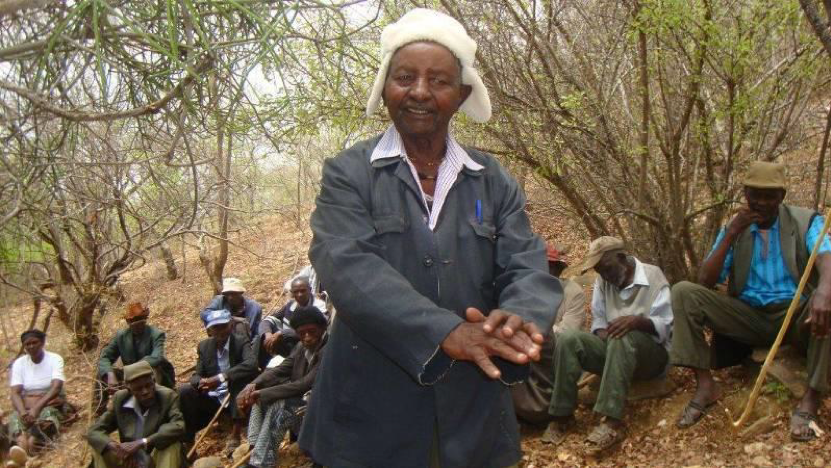First published on 01/05/2014, and last updated on 03/05/2018
By: Mburu Gathuru, African Biodiversity Network (Member)
The International Workshop on Indigenous Peoples’ and Community Conserved Territories and Areas (ICCAs) was held on 4th to 9th October at the Cravers Hotel in Thika, Kenya. The four-day workshop was organized by Institute for Culture and Ecology (ICE) in collaboration with Swedish Society for Nature Conservation (SSNC). The main goal of the workshop was to provide space where SSNC and partners together with representatives of ICCA Kenya group can engage in proactive and fruitful discussions on the subject of ICCAs and how the concept can be used to improve their work in different countries. The workshop was attended by 23 participants drawn from 8 different countries – South Africa, Malaysia, Ethiopia, France, Indonesia, Philippines, Uganda and Kenya.
The specific objectives of the workshop were:
Exchange knowledge and experiences on ICCAs and how ICCAs function in different regions;
Deepen the knowledge on ICCAs and their potential role in protecting of ecological land social values;
Provide useful tools to define and develop ICCAs, including the question of who identifies them;
Strengthen coordination among organizations involved in ICCA related work;
Better understand how to make use of legal frameworks (constitutions, conventions) to protect community rights to land.
All the participants shared problems associated with mining in their countries. It was clear that most governments are mining on conserved areas, denying the communities the rights to protect them. The communities, however, at times accept to exchange the land in return for large amounts of money. Communities get excited on seeing big international companies and tend to focus more on empty promises other than the impact mining will have on them. The next section of the workshop highlighted the experiences of different participants. The participants shared experiences on challenges and threats to ICCAs and how they respond to them. Some of the common challenges and threats that emerged were mining in the conserved areas, little or no recognition of the communities living in or around the areas they conserve, and lack of policy framework to guide community conservation in some of the countries. They further discussed on the legal instruments that contextualize ICCAs and the strategies that each organization will use in supporting communities to protect ICCAs.
Legal Instruments that contextualize ICCAs
This was discussed in the context of the current Kenyan situation, where great strides have been made to recognize and protect customary governance systems for sacred natural sites and other areas protected by communities. This is a huge departure from the substance of past laws that were used to undermine customary governance systems of indigenous communities. However, the drafting and implementation of relevant laws from the current Constitution is a different thing, and therefore communities need to be vigilant to ensure the gains made in the Constitution are not lost. It also came out that the biggest challenge is that few lawyers understand sacred places, and therefore the voices of the custodians are rarely heard. Participants agreed to go study the legal situation in their own countries to understand any windows of opportunity available for legal recognition and support of ICCAs.
Strategies in Supporting Communities to Protect ICCAs
The workshop identified the following strategies for use in their work with communities:
Advocacy;
Documentation and communication – media engagement helps to raise awareness;
Support for local institutions of governance and gender involvement;
Nature – Connecting to nature and protecting it;
Mobilization of resources;
Exchange visits between communities;
Strengthening networks;
ICCAs Registry – the need to register all the community conserved areas.
Key Resolutions and Way Forward
The participants discussed and resolved as follows:
To initiate and or strengthening national coalitions to ensure that ICCAs are recognized;
To keep networking and remain connected even with other open minded organizations;
Advocacy: To lobby governments to develop, implement or strengthen laws supporting ICCAs;
Raising awareness on the value of ICCAs at the grassroots;
Capacity building within our organizations, so that ICCAs as a tool is integrated in the strategies used;
Understanding the benefits of voluntary conservation.
